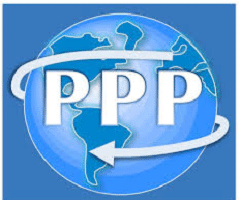PPP’s Role and Challenges in Public Services Reform in Post-Conflict Economies

There’s a lot of ongoing talk in business, government and academic circles about public private partnerships (PPPs). They have a role to play in public sector reform. They’re the best way to undertake major infrastructure projects on time and on budget. And why can’t the tech innovations that are transforming businesses be brought to the public side to improve government services?
It’s the developed countries that have leveraged these deals most extensively. The World Bank, for example, notes that the U.K. has the most projects, 648, while Korea has 567 and Australia, 127.
The institution further notes that the market is growing “in absolute terms…(with) the growth cycles of PPP investments…influenced by five big economies – Brazil, China, India, Mexico and Turkey – that have increased their market share over time.”
Traditionally, PPPs have tended to be projects intended to see through significant infrastructure projects. Singapore, for example, has used them successfully for desalination and water management projects.
A PPP has been behind the upgrades to the Mactan-Cebu International Airport in the Philippines, a project that has won much acclaim and is on track to finish in the middle of this year.
But many see PPPs as evolving and as even the best way we can successfully manage some of society’s most pressing issues. In one interview, former World Bank CFO Bertrand Badre said that multi-stakeholder partnerships are the only way to come to grips with the global challenges of sustainable development.
From my perspective, PPPs are just as critical to helping less developed and post-conflict countries rebuild their public sectors. But while the need is great, so are the challenges.
Post-conflict countries can become trapped in cycles of economic regression and further conflict. That results in overextended governments that have established patterns of suppressing the private sector. That’s not the stuff of successful public/private partnerships.
Overcoming those barriers takes rebuilding on a number of fronts, but starting with stronger policy making. This is essential if emerging economies are to learn to broaden their perspectives and borrow best practices from more advanced nations of the world.
My work in this area with the governments of Liberia and Sudan led to a greater understanding and appreciation for the importance of the private sector, particularly the innovators and entrepreneurs, to a struggling country’s long-term survival.
It was, we found, an education process. Government jobs alone cannot grow an economy or create wealth. It takes businesses of all sorts to create an environment that stimulates economic growth – and there should be a mutual interest in nurturing it.
Ultimately, the environment must be stable and one where long-term private sector investments will make sense. Stronger policies help, but they need to be accompanied by a concerted effort to tackle corruption and a willingness to share the risks.
In fact, some governments have actually gotten political risk insurance. In the Ivory Coast, such coverage led one PPP to finance construction of an important toll bridge after a decade-long delay.
Public Private Partnerships matter. Post conflict and emerging economies will need them to support their reform agendas as this century advances. It’s time we move from talk to action.










